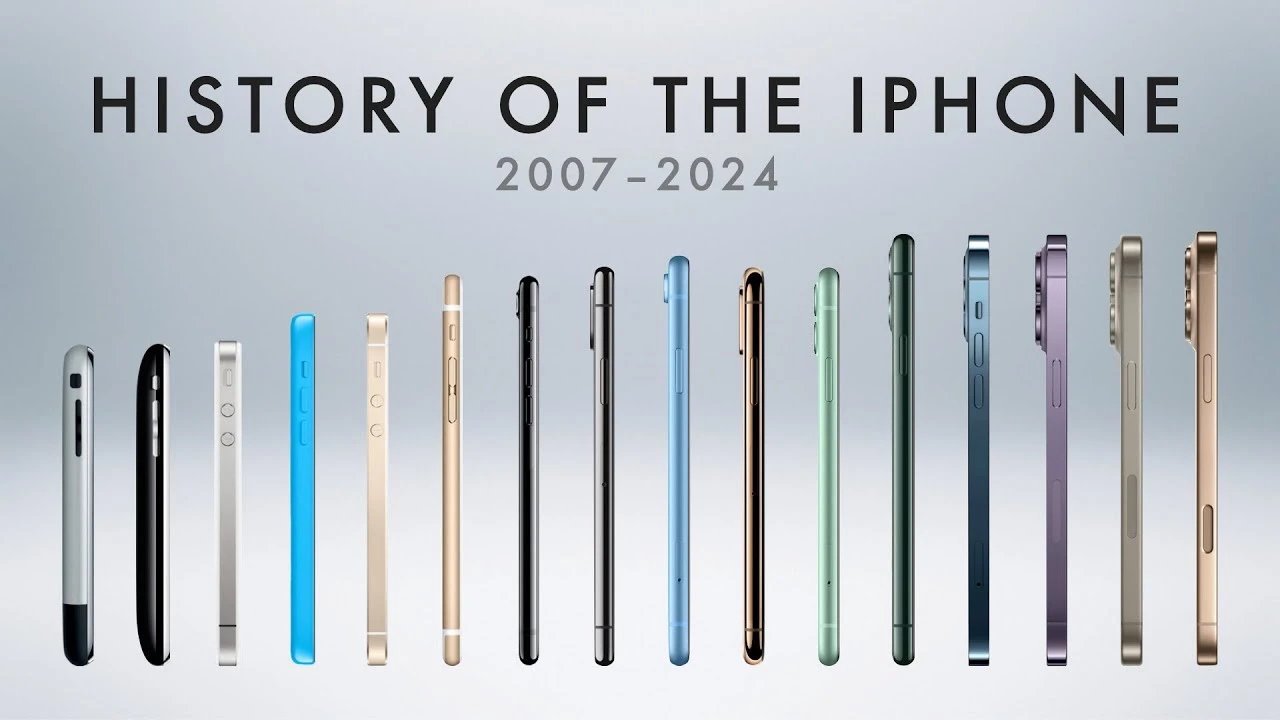
The Apple iPhone has undergone a remarkable evolution since its introduction in 2007, transforming the smartphone industry and setting new standards for mobile technology. The awesome video below from Apple Explained gives us a look at the iPhone’s history, detailing the key models, technological advancements, design changes, and market strategies that have shaped its development over the years.
From its humble beginnings as a groundbreaking device with limited features to its current status as a sophisticated series of smartphones, the iPhone has consistently pushed the boundaries of innovation. Each iteration has brought new features and improvements to meet the ever-evolving demands of consumers, solidifying Apple’s position as a leader in the smartphone market.
Key Milestones in iPhone History
- 2007: The original iPhone (iPhone 2G) launched on AT&T’s 2G network, marking the beginning of a new era in mobile technology.
- 2008: The iPhone 3G introduced support for 3G networks, GPS, and enterprise features, expanding its market reach.
- 2010: The iPhone 4 featured a new design, Retina display, and FaceTime for video calling, showcasing Apple’s ability to innovate.
- 2014: The iPhone 6 series introduced larger displays and NFC for Apple Pay, highlighting the demand for larger screens.
- 2017: The iPhone X introduced an OLED display and Face ID, marking a significant design shift.
- 2020: The iPhone 12 series introduced MagSafe and 5G, catering to diverse consumer preferences.
- 2022: The iPhone 14 series saw the discontinuation of the Mini model and the introduction of Dynamic Island and a 48MP camera.
Technological Advancements
Throughout its history, the iPhone has been at the forefront of technological advancements in the smartphone industry. From the introduction of the App Store in 2008, which transformed the way users interact with their devices, to the integration of advanced features like Touch ID, Face ID, and MagSafe, Apple has consistently pushed the boundaries of what is possible with mobile technology.
The iPhone has also seen significant improvements in camera technology over the years, with each new model introducing enhanced capabilities such as improved low-light performance, portrait mode, and advanced video recording features. These advancements have made the iPhone a popular choice for photographers and videographers alike.
Design Evolution
The iPhone’s design has undergone significant changes since its introduction, with each new model bringing a fresh look and feel to the device. From the original iPhone’s iconic design to the introduction of larger displays with the iPhone 6 series and the removal of the home button with the iPhone X, Apple has consistently pushed the boundaries of smartphone design.
The introduction of new materials like the surgical-grade stainless steel and ceramic shield in recent models has also contributed to the iPhone’s premium look and feel, while also improving its durability and resistance to damage.
Market Strategies
Apple’s market strategies have played a significant role in the iPhone’s success over the years. From the introduction of the budget-friendly iPhone SE to the diversification of the iPhone lineup with models like the iPhone 12 Mini and iPhone 14 Plus, Apple has consistently adapted its strategies to meet the changing needs and preferences of consumers.
The company’s focus on ecosystem integration, with features like iMessage, iCloud, and the App Store, has also contributed to the iPhone’s success by creating a seamless and convenient user experience across all of Apple’s devices and services.
Looking to the Future
As the iPhone continues to evolve, it is clear that Apple remains committed to pushing the boundaries of what is possible with mobile technology. With rumors of foldable displays, satellite connectivity, and even more advanced camera capabilities on the horizon, the future of the iPhone looks brighter than ever.
As consumers continue to demand more from their smartphones, Apple is well-positioned to meet those demands with its innovative designs, innovative technology, and user-centric approach to development. The iPhone’s history is a testament to the company’s ability to consistently deliver products that exceed expectations and set new standards for the industry.
In conclusion, the Apple iPhone’s complete history is a fascinating journey through the evolution of mobile technology. From its groundbreaking debut to its current status as a sophisticated series of smartphones, the iPhone has left an indelible mark on the industry and the lives of millions of users around the world. As we look to the future, it is clear that the iPhone will continue to shape the smartphone landscape for years to come.
Source & Image Credit: Apple Explained
Filed Under: Apple, Apple iPhone, Guides, Top News
Latest Geeky Gadgets Deals
Disclosure: Some of our articles include affiliate links. If you buy something through one of these links, Geeky Gadgets may earn an affiliate commission. Learn about our Disclosure Policy.